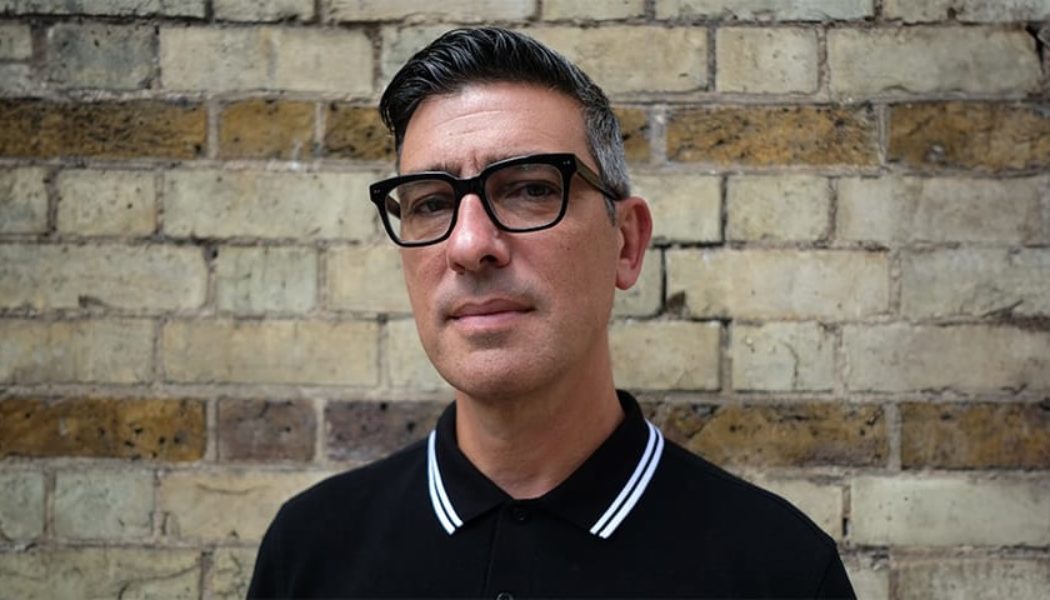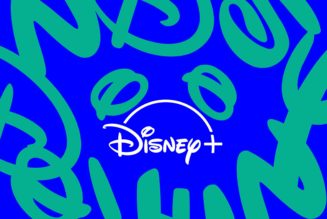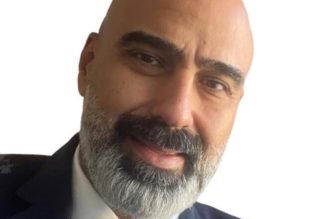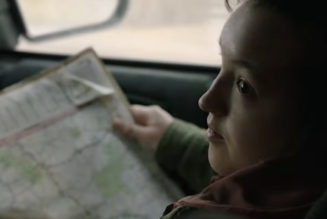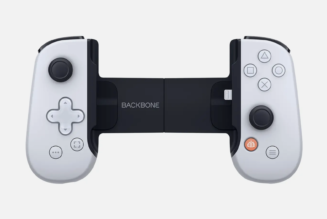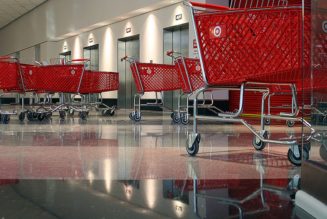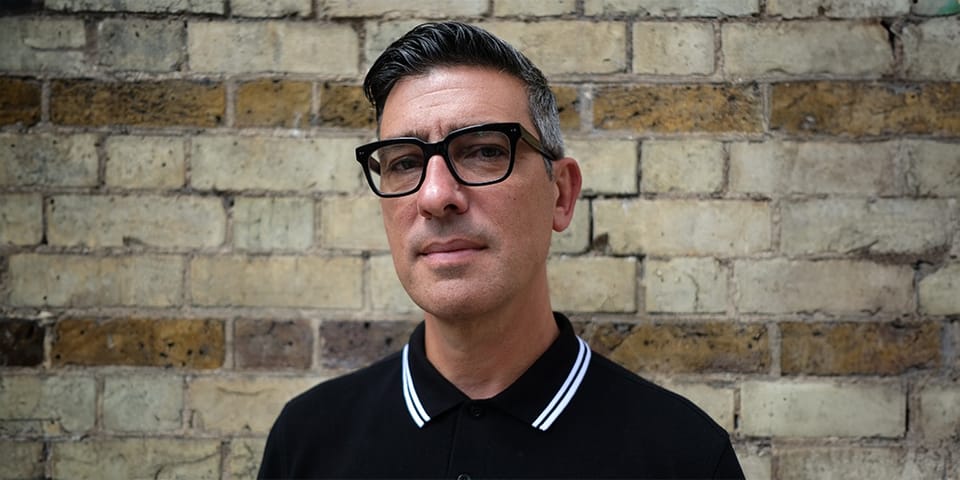
If you hear the name Bose and think “headphones”, you’re probably not alone. The Massachusetts-based brand is best known for its noise-cancelling headphones – a technology its founder, Dr. Bose, is credited with inventing in the 1980s – that we’ve featured in our best product round-ups this year here and here. Perhaps less well-known is the brand’s backstory. You won’t find tales on the internet of late nights spent tinkering in the family garage, like stories of Steve Jobs and the start of Apple that have become hardwired into our collective consciousness. But Bose isn’t Apple and, while the companies are leaders in their respective fields, the similarities stop there.
Bose was founded in 1964 by Amar Gopal Bose, a Bengali-American academic and entrepreneur. Instead of a garage, the brand’s story began in the hallowed halls of the Massachusetts Institute of Technology where a young Bose studied electrical engineering. His interest in sound – as well as with the things that produced sound – started early: as a teenager, Bose sourced broken radios from a local hardware store that he’d bring home to fix, invoice the original owners for the repair, then share 10% of the profits with the store owner (he kept the remaining 90%). As well as having obvious business acumen, Amar Bose was intellectually gifted. He studied at MIT and started his journey with a bachelor’s degree, went on to earn a doctorate, and eventually became one of the institution’s most-respected professors – a position he’d hold for over 40 years – all whilst building one of the world’s best-known audio brands. This blend of science and business has been woven through the brand’s fabric from day one.
When you consider that the company – which turns 60 next year – has spent the better part of six decades without a chief marketing officer on its staff, it might make sense why you’ve never heard this story. Marketing was never the goal; making the best product was. But, in today’s age, that strategy isn’t sustainable and in 2001 the brand appointed Jim Mollica as its first-ever Chief Marketing Officer. Mollica’s resume included stints at The Walt Disney Company, Ralph Lauren and MTV, world-famous brands whose marketing efforts stamped them permanently onto the cultural zeitgeist. In fact, Mollica’s first set of speakers were Bose, which makes you wonder if the big, empty boots he got called to fill were his all along. (He still has those speakers, by the way.)
Hypebeast recently sat down Mollica to discuss product design, purpose and music.
What’s it like being Bose’s first ever CMO?
It’s great. It’s fantastic. I’m a huge, huge music fan. I would classify myself as a music geek. I collect records. Play guitar. I’ve been in bad garage bands. I just love music. The very first speakers I ever bought were Bose. The brand stuck with me for years and years. So it’s a real honor to be the first person to step into that role. And it’s an interesting one because the company was so focused on engineering and the product – to just build the best product – that as the years went by marketing became an afterthought. Because the product was good enough and you didn’t have to do anything with it. But I think the world has changed, and advertising has changed.
How does your role and marketing come into play at a brand where the product is king?
To be in a position where you are helping to tell a story of products that are engineered by passionate music fans, for music fans, through 60 years of innovation and invention. That’s all we do. My jobs is to take these incredible products and talk about what they are as an emotional enabler. Because music is so emotional at its core. And it impacts people, especially people that are passionate music fans in so many ways. Regardless of what you do in your profession or your daily life, it helps you if you’re working out in the morning, or if you’re running in the morning it helps you get through that last mile. There’s inspiration behind music. It sets the mood in a restaurant. Music sets the tone, so what I saw as my opportunity is how do I take that and plug these incredible products into this like emotional elevator. Also, Bose is different than a lot of the other brands and competitors that are out there. They’re tech companies. They make phones and laptops and TVs and washing machines. And they make movies and TV shows and they have ad networks. That’s all we do. All we do is create incredible sound experiences. This is all we do that we’ve dedicated 60 years to and for us sounds are most powerful force on earth.
How does Bose ensure an elevated listening experience for its users in the age of highly-compressed streaming services?
First of all, we’re not for everybody. It’s like shoes: not everybody is going to spend $500 on a pair of shoes, but if you’re a sneakerhead maybe you will. For somebody who doesn’t really care about their music, it’s nice to have. But it’s not defining who they are, right? It’s part of their ecosystem that plugs easily into everything else. We always start with sound. We build the best product for each distinct listening occasion. It may be for a higher fidelity. It may be noise cancellation. We [try to] best represent the music the way that artists intended.
What role does software play? How does it complement the hardware?
Software has had increasing importance – no surprise to anybody. Because it’s really about the experience. If you have a great hardware product without the software, it’s going to underwhelm. If you have great software without the hardware, it’s going to underwhelm. You need both. That’s the way we look at it from creating consumer experiences. We’ve made a commitment to continuing to update the software in our products so that they get better with time. We’re looking at ways that we can continue to add features and functionalities to all of our products to make them better and to issue software updates when you connect our products. We continue to optimize the user experience through user feedback.
What about sound computation and the kind of stuff nobody sees?
That’s the real magic, right? Even with noise cancellation, our algorithms are obviously very proprietary and world class. Our engineers and incredible and the heritage we have linked back to MIT really comes into play. Same thing with our technology that maps your ear canal, what it’s doing is it’s saying “okay, no two ear canals are the same.” We each hear sound differently just like you’d hear sounds differently in different shaped rooms. So, yeah, those are the kinds of things that really make our products extraordinary. It’s really the software inside the product.
Bose is still a private company and MIT is the major shareholder. Can you tell me about the relationship between the two?
They are the primary ownership stake within the company, but they don’t have any business control or input on the running of the organization. What’s most interesting about it is is that it continues to propel the heritage of innovation – world class, leading innovation. They are an incredibly fertile recruiting ground for us. But what’s most important or interesting to me about it is that our founder was a professor there and had such a close relationship with the school. Many of the original execs came from there. It’s just created this heritage of thoughtfulness, invention, bleeding-edge innovation, all of those things, and it’s been a much more inquisitive atmosphere because of it.
How important is design for Bose?
It’s huge. But it’s different, right? In the sense that design [for us] first and foremost starts with sound. We will not create something if we cannot get the best sound out of it. It all has to start with sound. We design around sound and creating the best sound starts with the audio engineers, then form factors and design elements start to come into play. But it’s really important to create beautiful products, premium products with premium materials that represent the incredible audio performance that we have.
What music are you likely to hear walking around Bose HQ?
The beauty of it is you will hear everything all the time. There’s constantly music playing. We have very quiet space for deep concentration, but the amount of musicians per capita is extreme! It feels like the overwhelming majority play something, if not multiple [instruments]. We have world class sound engineers. There’s a guy on my team that – in the first part of his career – was a recording engineer for Aerosmith. I just found that out through casual conversation one day. You’ll hear classical music, you’ll hear experimental, you’ll hear jazz, but what you hear in the morning is going to be very, very different than what you hear a little bit later when people are grinding away.
How connected to and how important is music for the company?
I think if you looked at our heritage, we were very focused on utility and functionality. It was just about the product. Our authentic heritage is about the celebration of sound, so if we believe that sound is power, then we have to be all about the music. What we’ve done is we’ve really reinforced our history with this. We’re doing things first of all with artists that celebrate artists. We’re doing things that you would expect music fans to do, and showing up in places where music fans would expect to be. Last year, we launched our QC II earbuds at fashion week. Why fashion week? Because fashion week is a celebration of not just fashion, but music. Every show is underpinned by a soundtrack. When we were digging into some things around music production, one of the things we stumbled across was only 2.8% of music producers are women. And that felt wildly off for us. Like, wait, we have all these incredible artists that are women, why doesn’t the industry have a greater representation of women? We got together with an organization called She Is The Music and we started to champion a program called Turn the Dial, which gives emerging young producers – women producers – the opportunity to work with emerging artists like Pink Pantheress, giving them a shot at creating new music through a partnership. And celebrating that. It’s a win-win and a win for us. I feel like our obligation is to celebrate all music and put a spotlight on new emerging artists as well. And the industry as a whole and how we celebrate collaboration, creativity and invention in those spaces, to open up opportunities for people because that’s what music fans do. You want to hear new stuff, you want to be exposed to new perspectives and new creation and new thoughts. So we’re completely focused on those areas.
Who are you listening to now?
I listen to everything. From indie rock and ’80s punk rock when I grew up on my skateboard, all the way through to early hip hop. I listen to experimental jazz. I listen to noise. I go the complete spectrum. But some of the new artists that I’ve really been into a lot include Weird Nightmare which sounds little garage with some pop sensibilities to it. Really, really interesting. Or The Pretty Flowers, sort of indie with a little bit of new wave. Little Simz, who I’m like…”Wow!” I just started listening to that new record blew me away.
What can we expect from Bose in the next couple years?
We are going to continue to focus on creating incredible sound experiences on three spectrums: on the go, in the home, and in the car. Man, some of the partnerships we’re creating with with Porsche, and the sound design created in their incredible electronic vehicles… [Watch this space.]
It’s Friday, don’t forget to check this week’s Best New Tracks with new music from Burna Boy, Lil Yachty and Mitski.
